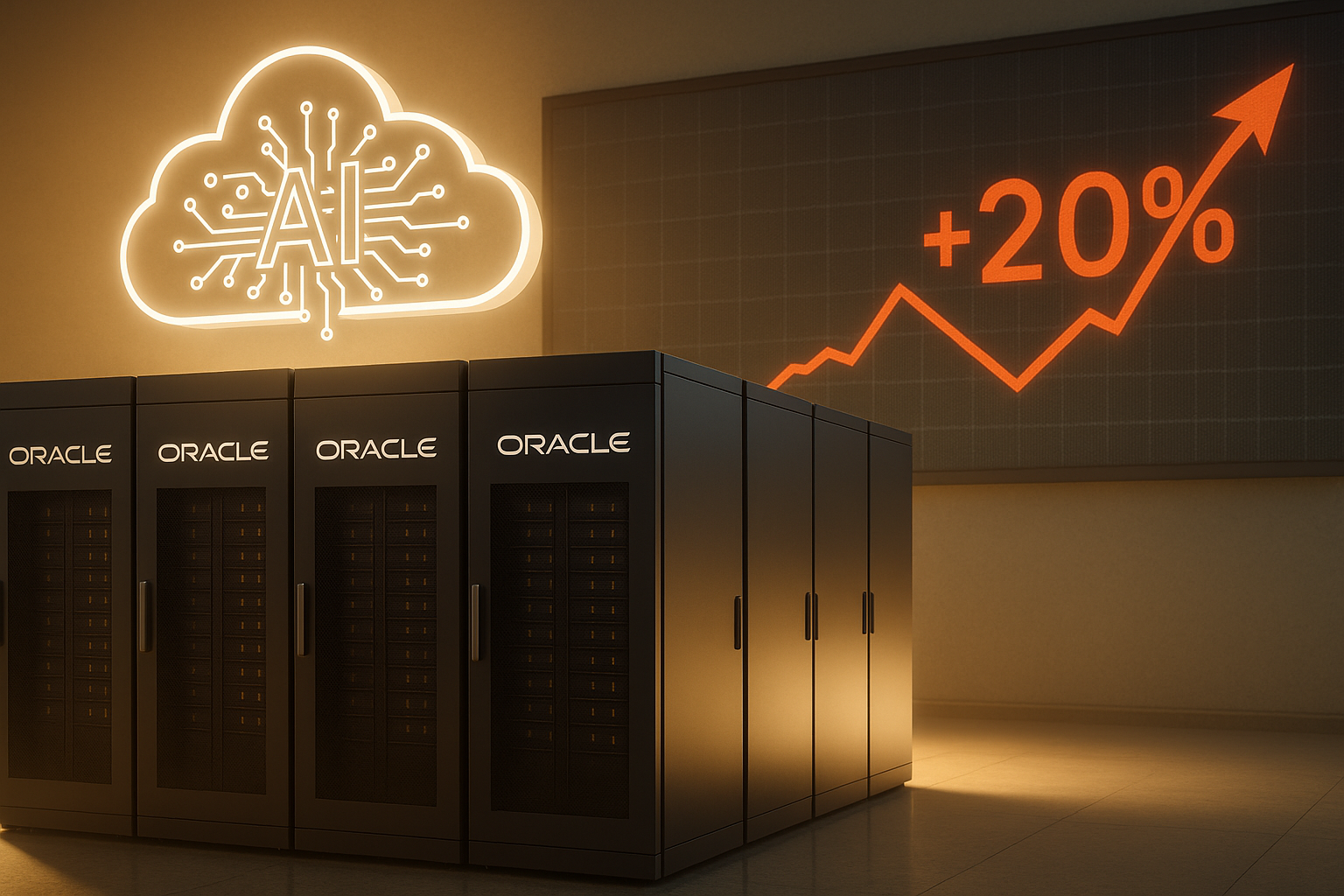Larry Ellison has done it again. The tech industry's perpetual comeback kid just engineered another dramatic third act in Oracle's long corporate saga, sending the company's stock soaring a jaw-dropping 20% in after-hours trading yesterday.
The catalyst? An almost unbelievable forecast of 77% cloud revenue growth and the announcement of several multi-billion dollar contracts that have suddenly transformed Oracle from tech dinosaur to AI infrastructure darling.
I've covered Oracle for nearly a decade, and I've never seen anything quite like this reaction. The market euphoria reflects something deeper than just impressive numbers—it signals a fundamental reassessment of Oracle's place in the tech ecosystem.
Let's be honest: most industry observers (myself included) had mentally filed Oracle away as a legacy database vendor doomed to slow, dignified decline while AWS, Azure, and Google Cloud divided the future between them. Whoops.
What Oracle has pulled off here is nothing short of remarkable. They've successfully repositioned themselves as critical infrastructure for the AI revolution. It's not just about hosting data anymore—it's about providing the foundation upon which next-generation AI applications will be built.
"This is the fastest growth rate in Oracle's history," Ellison declared on the earnings call, sounding like a man who'd just discovered the fountain of youth rather than a 79-year-old billionaire.
Is it sustainable? That's the trillion-dollar question.
The market's reaction tells us something fascinating about the current investor psychology. We're witnessing a stark division between companies that can credibly claim to be AI beneficiaries and those that can't. Oracle has apparently convinced Wall Street that it belongs firmly in the first camp.
Their timing couldn't be better. In conversations with several enterprise IT leaders last month, I kept hearing the same theme: they're desperate for AI infrastructure that works with their existing systems. Oracle's decades-long relationships with the world's largest companies might be paying dividends at precisely the right moment.
There's a historical parallel worth considering here. During the California gold rush, the surest fortunes weren't made by prospectors but by the shrewd entrepreneurs selling picks, shovels, and blue jeans. Oracle is essentially positioning itself as the complete mining operation provider in the AI gold rush—and investors are scrambling to get a piece of the action.
But (and there's always a but with Oracle) we've seen this movie before. Remember when they were going to dominate cloud applications? Or become the leading hardware company after swallowing Sun Microsystems? The market seems to have a remarkably short memory for these past episodes of unfulfilled Oracle promises.
That 77% growth forecast seems... suspiciously precise. It's high enough to generate headlines and stock bumps, but not so outlandish as to strain credibility completely. It's also—just coincidentally, I'm sure—higher than any major competitor is forecasting.
Look, Oracle genuinely does have technological advantages in certain areas. Their database technology remains best-in-class for specific workloads, and Ellison's early bet on industry-specific cloud applications has proven prescient.
The multi-billion dollar contracts they mentioned are particularly intriguing. Large enterprises—especially those with regulatory and compliance concerns—have moved to the cloud more slowly than anyone predicted a decade ago. If Oracle has indeed cracked this market, leveraging their longstanding enterprise relationships, this could represent a genuine inflection point rather than just financial engineering.
I watched one CIO practically bounce with excitement at a conference last week when describing how they were integrating Oracle's AI capabilities with their existing systems. "We've been with Oracle for 20 years," she told me. "Why would we start from scratch with someone else now?"
Why indeed.
The truth, as always with Oracle, probably lies somewhere between the hype and the skepticism. They've clearly made substantial improvements to their cloud offerings, and the AI wave provides a perfect narrative vehicle for their renaissance.
In the meantime, Wall Street has spoken loudly: "We believe in Larry again."
At least until the next earnings call.
